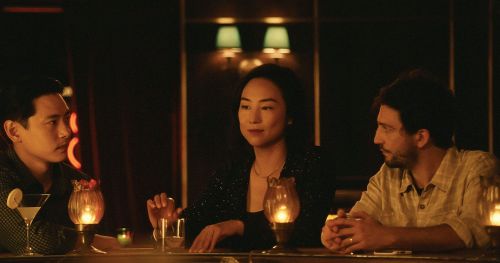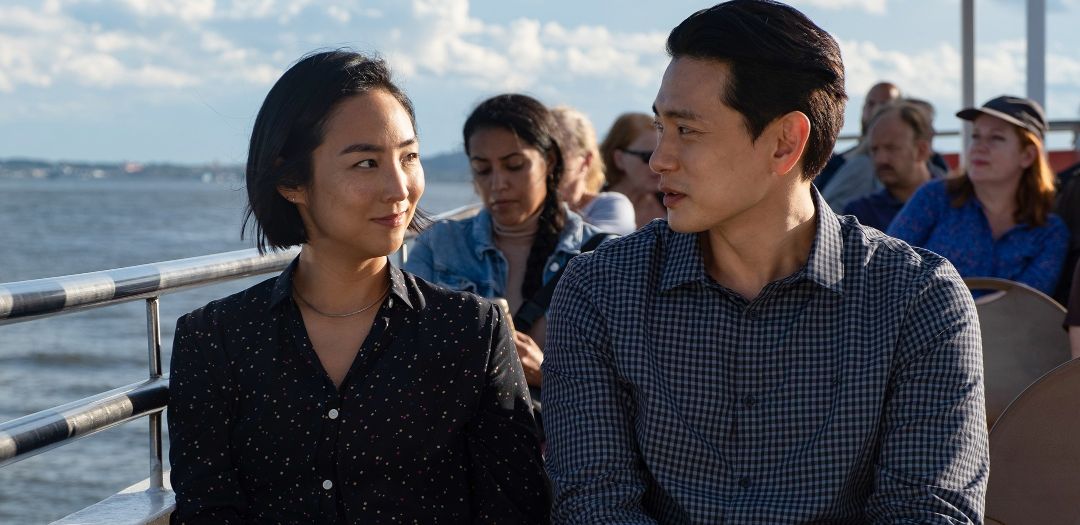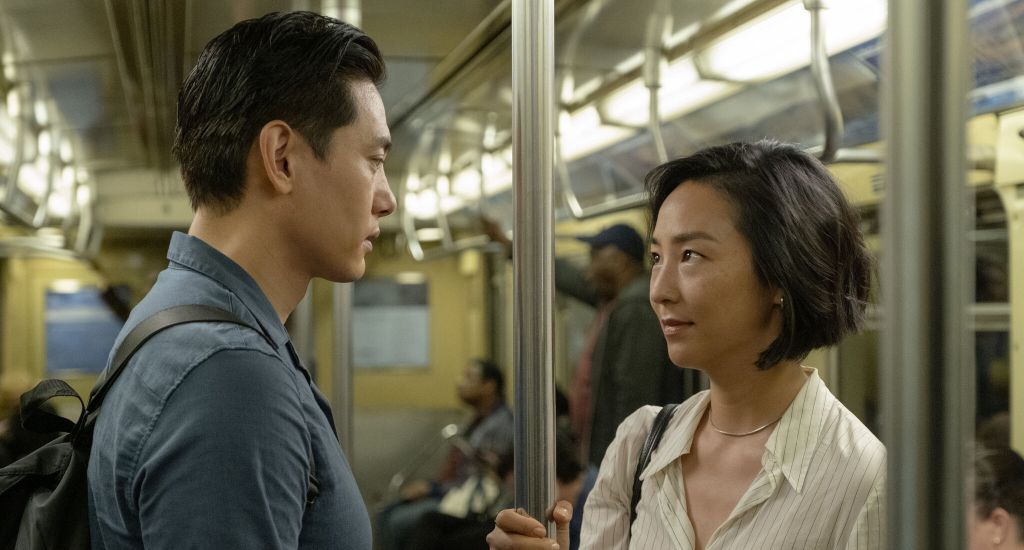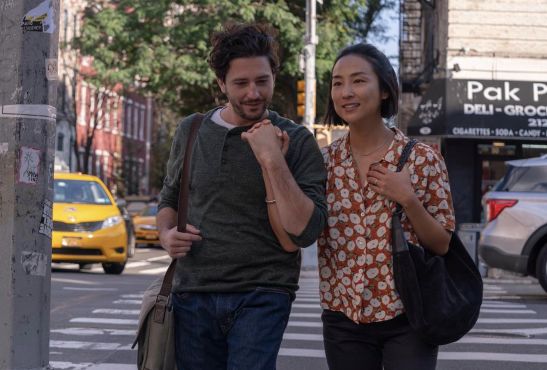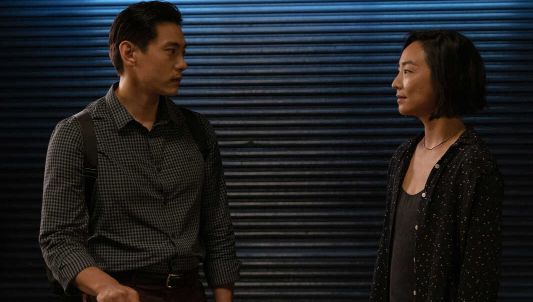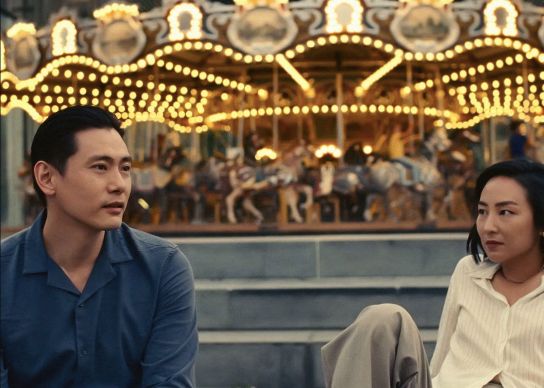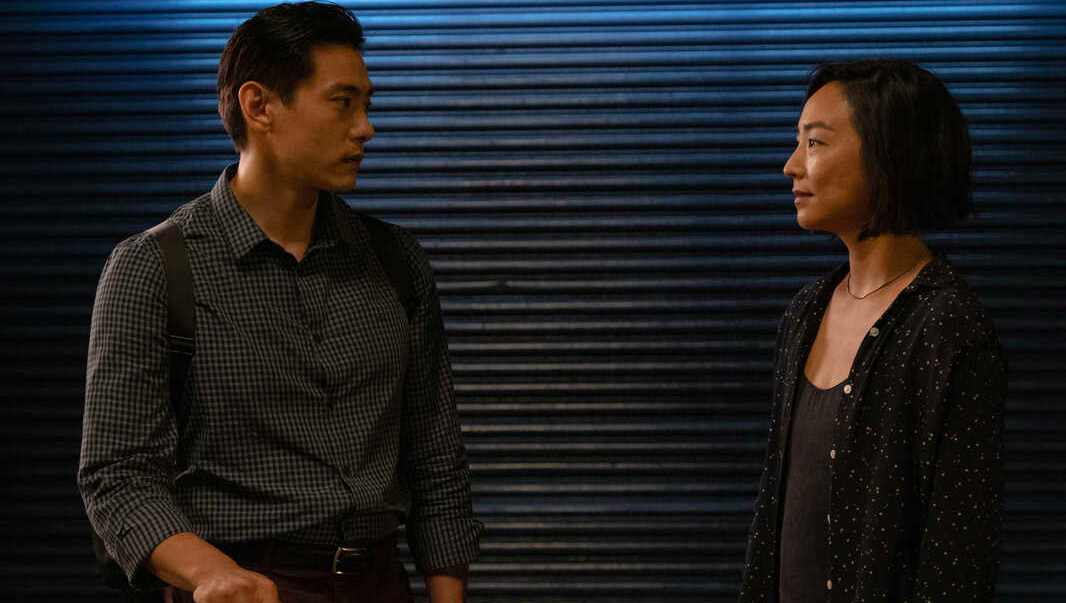The Celine Song-directed romantic film “Past Lives” tells the tale of two people who are inexorably linked to one another but are kept apart by circumstance. It picks up the story of Nora and Hae Sung at different stages in their life, as they reconnect and realise how far their paths have diverged. The story is told across three portions. The movie explores the idea of fate and how it influences our lives, keeping us with some individuals while letting us part ways with others, in addition to the romantic tension between them. In the end, Nora comes to the realisation that many decisions—some of which we make and others which are made for us—define our lives. What the movie’s conclusion entails for her and Hae Sung is as follows. Spoilers follow!
Past Lives Plot Synopsis
Hae Sung and Na Young share a common upbringing in Seoul. They enjoy one other greatly and are good friends. Na Young’s mother intends to give her daughter some happy memories she may carry with her while the family prepares to leave South Korea for Canada. The two 12-year-olds arrange to meet up and spend the day together. Later, Na Young departs for Canada and takes the name Nora.
After twelve years, Nora relocated to New York and is now a playwright there. She begins researching her buddies from Seoul one day for fun. She is shocked to learn that Hae Sung tried to find her since she remembers him. Inquiring as to whether he still remembers her, she texts him. Hae Sung is also taken aback. He understands that he was unable to locate Nora the previous time because he was unaware of her previous name change.
Over Skype, Nora and Hae Sung communicate frequently for the following few months. They even make plans to meet in person and schedule meetings according to their respective time zones. Either Nora or Hae Sung will need to travel to Seoul or New York, respectively. Their meeting cannot take place earlier than a year from now due to their respective commitments. Nora vows not to let the time difference interfere with her life and career in New York after realising that things with Hae Sung will not work out due to the difference in time. They part ways. Hae Sung to New York twelve years later to meet Nora, who has now wed Arthur.
Past Lives Ending: Do Nora and Hae Sung End Up Together?
When two childhood sweethearts part ways in a story, it typically leads to their reunion and a happy conclusion. The plot of the story is driven by a lucky break or two, overcoming every challenge, and moving on from any new romantic interest that may have entered their life. It seems more sense that individuals who have known each other since they were young would come together than some chance acquaintance they made along the way. The following are Arthur’s opinions on the tale of his wife and Hae Sung.
Although Nora and Hae Sung appeared to be made for one another, timing and distance prevented them from being together. They were too far away when they first connected on Facebook to maintain a long-distance romance. Even the likelihood of a face-to-face encounter was so remote that Nora was forced to end their conversation. Nora had already been wed to Arthur when Hae Sung arrives in New York.
Nora would have divorced Arthur in every other clichéd Hollywood rom-com because he would either have been the antagonist or someone Nora realised she didn’t love enough. She would have fallen more deeply in love with Hae Sung after seeing him, and being with him would have become a reality. The conclusion to which the entire movie would have been building up would have been me running off with him to Seoul. Nora, however, finds that things are not as straightforward as they are in reality.
Nora adored Hae Sung, right? Yes. She adored Arthur, though. She decided to let go of Hae Sung to end their communication. She made the same decision to be with Arthur. Over travelling to Seoul and staying with Hae Sung, she opted for New York and her life there. She made these deliberate choices for her life because they were meaningful to her. It makes no difference what kind of life she might have had with Hae Sung because that’s not what she decided to do. In this sense, choices are what important, and Nora upholds them despite how painful it is for her to say goodbye to Hae Sung repeatedly.
Even Arthur wonders if Nora wants to go away with Hae Sung because she was destined to be with him all along given how their relationship has endured for more than 20 years. She assures him that she won’t give up her life for “some dude.” In retrospect, Nora’s relationship with Hae Sung was brief in compared to the years she had spent with Arthur. Arthur and Nora have been wed for seven years when Hae Sung arrives in New York. Running away with Hae Sung might sound romantic, but that is not feasible. Nora says goodbye to Hae Sung without giving up the life she has created with Arthur.
Why Does Nora Cry?
Hae Sung and Nora spend the day together, and then Nora brings him to meet Arthur. Hae Sung discusses his feelings with Arthur throughout their meal, revealing that he likes him despite his initial misgivings. They return home at the end of the day. Nora escorts Hae Sung to his cab as Arthur stays at the home. On the journey, they seldom speak to one another and instead exchange glances for a little period of time. When the cab finally arrives, Hae Sung asks Nora if this is one of their previous lives as he prepares to get in. If so, what does she believe their relationship will be in their subsequent lives?
Nora claims she is unsure. Hae Sung enters the taxi and drives off. Arthur is waiting outside Nora’s flat as she makes her way back there. She begins to sob as he gets close to her. Why does Nora cry when Hae Sung is gone when she has chosen Arthur over him? Does that imply that she is sorry she let him go? Is there love between them? Should she have abandoned Arthur and New York in favour of travelling to Seoul with Hae Sung?
Choices are one of the main topics of “Past Lives.” Even though Nora and Hae Sung frequently discuss in-yeon and their link to both their current existence and their past lives, decisions ultimately determine how things turn out. In that sense, Nora didn’t select Hae Sung or a life with him. The route Nora chose to take instead of the alternate one into the woods is what eventually brought her to Arthur. Nora’s tears at the conclusion have nothing to do with her decision to choose this life in New York or Arthur over Hae Sung. It concerns the alternative route she skipped. She doesn’t cry out of regret, but rather from the pain of never experiencing the life that may have been.
Hae Sung represented the life Nora left behind in Seoul to her. When she was twelve, she departed for Canada. Nora changed as a result of leaving her own nation, moving to another one, and assimilating into its culture. She eventually lost touch with the 12-year-old South Korean girl she once was. She sees Hae Sung as a symbol of such innocence. He serves as her last remaining link to the girl who lived in Korea, had lofty ambitions, and didn’t feel disassociated from her Korean identity when she encountered another Korean person. She was able to rekindle her bond with Seoul thanks to her reunion with Hae Sung in a way that no one else could.
It took letting go of that 12-year-old version of herself to let go of Hae Sung. Particularly after getting back in touch with Hae Sung, it feels like she is cutting off a tie to Seoul that she had held onto for so many years. Not only does she fear that this may be the last time she sees Hae Sung, but she also experiences weird yearning for a life that is not her own. Although she had always felt this way, Hae Sung’s hypothetical scenarios may have also helped her to express it.
The fact that Nora is crying for the first time in this scene is another intriguing aspect of it. He adds how she was a crybaby and used to cry all the time in a scene where she and Hae Sung are conversing on Skype and remembering the good old days. She admits that she has stopped crying. When she moved to Canada, she stopped crying because she realised that nobody still gave a damn. Perhaps she also viewed sobbing as a sign of weakness, which she didn’t want to be in this new nation where she imagined realising her ambitions.
Later, when Arthur learns that Nora used to be a crybaby as a child, he is a little taken aback. She presumably never cried in front of him, so he couldn’t have imagined it. When she sobs in front of him in the closing scene, it’s an inadvertent step towards becoming her former self. This is a turning point in their relationship because she can now cry in front of Arthur and feel cared for. Nora discovers her way back to the life she abandoned in Seoul by letting go of the one thing she had believed to be her link to it.
What Happens to Hae Sung?
The plot centres on Hae Sung’s unrequited love for Nora because it keeps coming back to how he still feels about her after all these years. Hae Sung’s affection for her dates back to their early years, when life was simpler and they were free to be joyful without worrying too much about what they wanted out of life or whether there were any requirements for getting married.
When Nora departs from Seoul, Hae Sung experiences life’s injustice for the first time. He has a crush on his friend and is upset about losing him. He dislikes Nora for being OK with leaving him behind and looking forward to a fresh start in Canada. However, because they are still young, none of them fully understands the magnitude of their separation. This is the reason why their farewell doesn’t provide Hae Sung with the closure he seeks for the ensuing 20 years.
When they’re older, Hae Sung searches for Nora, but unlike her, it’s not by accident or as a joke. He went out looking for her. After twelve years, when they finally cross paths again, Hae Sung admits he still misses her. She represented the life he might have had for him in some ways, despite the fact that he was the one who was left behind. It was a romantic idea he had, something pure and innocent like his early years with her.
Hae Sung is upset when Nora advises they break up, but he comprehends why it’s best for them. He still holds onto her in some measure even after that. Years later, he makes the decision to visit Nora in New York. It happens at the same time that he and his fiancée are taking a break to reflect and determine whether or not they want to be married. When Nora asks him why they don’t just get married if they are in love, Hae Sung focuses on the conditions that aren’t met rather than discussing their love for one another. By the time his stay is through, it becomes obvious that he wasn’t only there to meet Nora after all. It wasn’t even about snatching her away from Arthur and earning her back. Before he continued with his life, he needed to find closure.
It is unknown who proposed they put their romance on hold, although given his affections for Nora, Hae Sung may have made that suggestion. Before getting hitched to his partner and beginning a new life with her, he could have wished to end the Nora Chapter. He realised he couldn’t accomplish it by speaking with her via Skype. To assess her feelings and his own, as well as to finish things more favourably than they had the previous time, he needed to see her face to face. He required the resolution they lacked as kids.
Hae Sung finally notices that Nora has moved on and is content with Arthur. He also understands that she belongs in New York with her husband, and any notion that she and Hae Sung would end up together is really a fiction, just as their hypotheses about what they might have been in previous lifetimes to have their current lives intertwined in this manner. Hae Sung wonders if there is a chance for them in another life even as he accepts the situation and bids Nora goodbye. Maybe this was a previous existence, a layer of in-yeong that would accumulate and bring them together in the next. In that life, what would they be to one another?

In the final shot, Hae Sung is seen in the cab, but his demeanour is very different from Nora’s, who fell down in tears. He appears relieved, perhaps as a result of his ability to let go of Nora. When he arrived in New York, he was able to find what he was looking for. The scene returns to a youthful Hae Sung and Nora in Seoul at night, standing on routes that separate because this is the resolution and the farewell that their 12-year-old selves deserved. We don’t know if Hae Sung reconciles with his lover and marries her. But it’s obvious that his need for Nora won’t be present wherever his life goes from this point on. He removed that cord and now feels more liberated.

